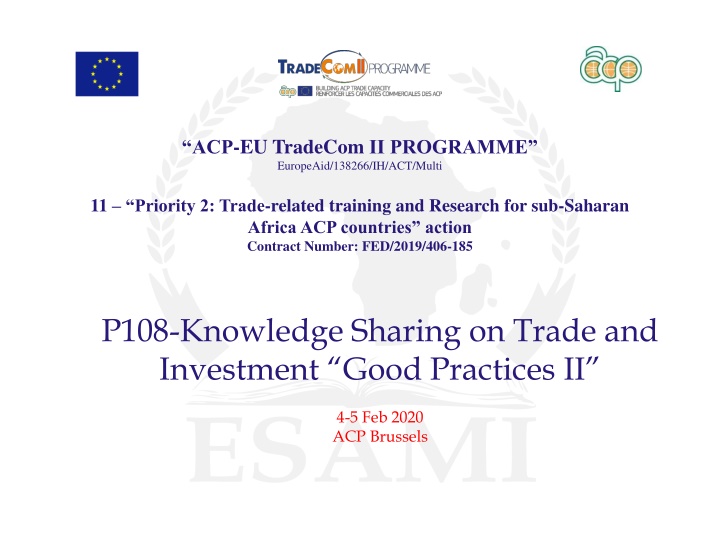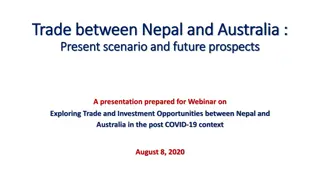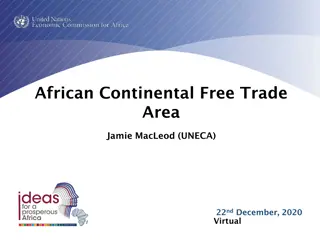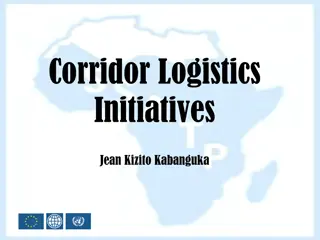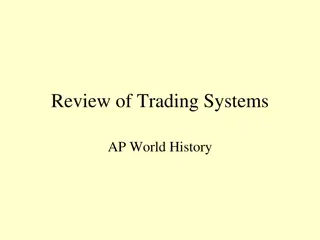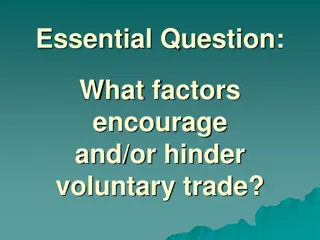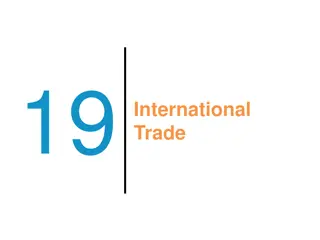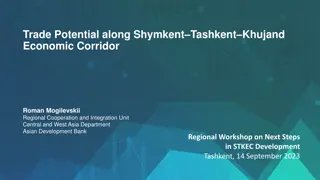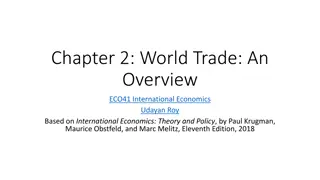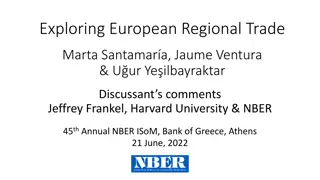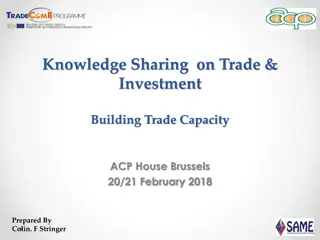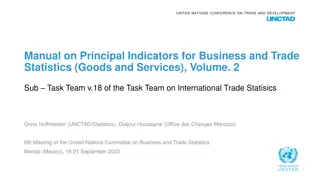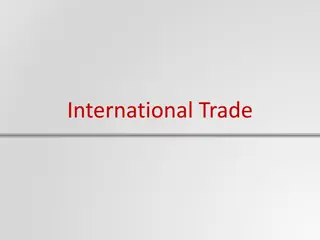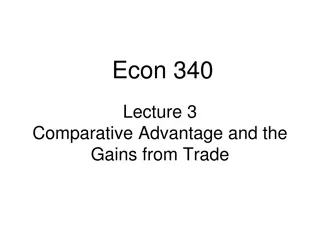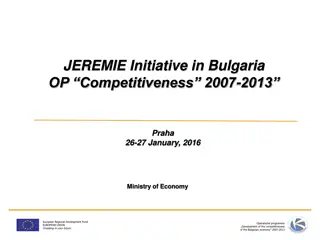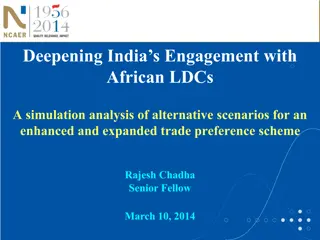Enhancing Competitiveness Through Trade-related Research in African Regions
Research conducted under the ACP-EU TradeCom II Programme focuses on trade-related training and knowledge sharing for sub-Saharan African countries. The project aims to enhance competitiveness by examining trade implementation challenges, legal instruments, and regulatory gaps within the COMESA and EAC regions. Findings from case studies and assessments will inform decision-making processes and potentially lead to the development of executive courses tailored to address knowledge gaps and enhance competitiveness in areas such as trade in services.
Download Presentation

Please find below an Image/Link to download the presentation.
The content on the website is provided AS IS for your information and personal use only. It may not be sold, licensed, or shared on other websites without obtaining consent from the author.If you encounter any issues during the download, it is possible that the publisher has removed the file from their server.
You are allowed to download the files provided on this website for personal or commercial use, subject to the condition that they are used lawfully. All files are the property of their respective owners.
The content on the website is provided AS IS for your information and personal use only. It may not be sold, licensed, or shared on other websites without obtaining consent from the author.
E N D
Presentation Transcript
ACP-EU TradeCom II PROGRAMME EuropeAid/138266/IH/ACT/Multi 11 Priority 2: Trade-related training and Research for sub-Saharan Africa ACP countries action Contract Number: FED/2019/406-185 P108-Knowledge Sharing on Trade and Investment Good Practices II 4-5 Feb 2020 ACP Brussels
Research in support of enhanced Competitiveness As part of the Action being implemented by trapca-ESAMI, the 5 planned case studies focus on emerging integration issues for African countries. Preliminary findings from 3 ongoing case studies Scope of case study coverage attributed to budgetary constraint With more additional support, both scope and sectoral trade-related issues can be widened building on ongoing studies
Case studies 1. Assessment of the implementation of trade in services commitments o EAC o COMESA 2. Assessment of SADC regional initiative to mitigate high transactions attributed to national guarantee bond schemes o Durban Kasumbalesa corridor Expected findings o Assessments will provide implementation challenges measures o Insights will shape decision-making competitiveness, youth and women entrepreneurships o Knowledge gaps identified may be used to either enhance planned executive courses or develop new executive course important and insights mitigation on possible to enhance
COMESA, EAC Trade in Services Focus o Assessment of existing legal instruments on trade in services, liberalisation commitments and implementation status at member state level. Issues o Interrelationship of measures at implementation level o Role of trade in services on industry and product competitiveness? o Challenges in trade in services agenda
COMESA, EAC Trade in Services Methodology o Review of reports on implementation status and issues o Benchmarking on international best practices EU & CARICOM o Review of literature on private sector experiences o Interviews to be undertaken with principal coordinators of trade in services at the RECs, regional business councils.
COMESA, EAC Trade in Services Challenges o Capacity gaps o Weak regulatory gaps o Limited involvement of core stakeholders e.g. private sector o Limited institutional coordination o Limited resources for effective implementation o Limited conceptualisation interrelationships of various measures at policy making and implementation levels o Delays in finalisation of critical council decisions to foster cross border mobility of services of the
COMESA, EAC Trade in Services Preliminary findings oBoth EAC and COMESA applied list approach for scheduling commitments based on GATS oInstitutional implementation (regional and national committees) oImplementation challenge strategic frameworks mechanisms framework for lack of and M&E
COMESA, EAC Trade in Services Pending work o Assessment of associated relevant reforms at national level o Assessment of the efficacy of institutional cooperation frameworks for implementation o Benchmarking with EU and CARICOM o Insights from interviews with REC staff and private sector.
Durban-Kasumbalesa corridor Issues high cost of transactions and processes o Individual bond guarantee schemes valid in each member state in SADC o Goods destined to DRC traverse 3 countries implying 3 bond guarantees o Associated delays and related transaction costs
Durban-Kasumbalesa corridor Initiative to mitigate transaction cost challenge - SADC regional bond guarantee scheme o Provided for in the SADC Protocol on trade, transport, communications and meteorology o Harmonisation of procedures facilitation o Expected reduction in cost of imports which translates to enhanced competitiveness of products whose inputs are imported o Positive spill over effect on women and youth involved in cross-border businesses enhances trade
Durban-Kasumbalesa corridor Methodology o Assessment of implementation of SADC initiatives - Regional bond guarantee scheme Pending work o Assessment of the implementation of the SADC regional bond guarantee scheme
